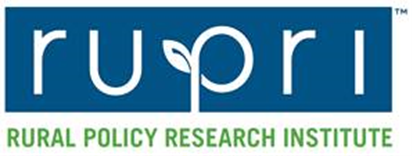- CMS: Medicare Program; Implementation of Prior Authorization for Select Services for the Wasteful and Inappropriate Services Reduction (WISeR) Model
- Public Inspection: CMS: Medicare Program: Implementation of Prior Authorization for Select Services for the Wasteful and Inappropriate Services Reduction Model
- CMS: Secretarial Comments on the CBE's (Battelle Memorial Institute) 2024 Activities: Report to Congress and the Secretary of the Department of Health and Human Services
- HHS: Patient Protection and Affordable Care Act: Marketplace Integrity and Affordability
- HRSA Announces Action to Lower Out-of-Pocket Costs for Life-Saving Medications at Health Centers Nationwide
- Public Inspection: HHS: Patient Protection and Affordable Care Act: Marketplace Integrity and Affordability
- Increased Risk of Cyber Threats Against Healthcare and Public Health Sector
- Eight Hospitals Selected for First Cohort of Rural Hospital Stabilization Program
- Announcing the 2030 Census Disclosure Avoidance Research Program
- CMS: Medicare Program; Hospital Inpatient Prospective Payment Systems for Acute Care Hospitals and the Long-Term Care Hospital Prospective Payment System and Policy Changes and Fiscal Year 2026 Rates; Requirements for Quality Programs; and Other Policy Changes; Correction
- CMS: Medicare Program; Hospital Inpatient Prospective Payment Systems for Acute Care Hospitals and the Long-Term Care Hospital Prospective Payment System and Policy Changes and Fiscal Year 2026 Rates; Requirements for Quality Programs; and Other Policy Changes; Correction
- CMS: Medicare and Medicaid Programs; Contract Year 2026 Policy and Technical Changes to the Medicare Advantage Program, Medicare Prescription Drug Benefit Program, Medicare Cost Plan Program, and Programs of All-Inclusive Care for the Elderly; Correction
- CMS: Medicare and Medicaid Programs; Contract Year 2026 Policy and Technical Changes to the Medicare Advantage Program, Medicare Prescription Drug Benefit Program, Medicare Cost Plan Program, and Programs of All-Inclusive Care for the Elderly; Correction
- CMS: Medicare Program; Prospective Payment System and Consolidated Billing for Skilled Nursing Facilities; Updates to the Quality Reporting Program for Federal Fiscal Year 2026
- CMS: Medicare Program; FY 2026 Hospice Wage Index and Payment Rate Update and Hospice Quality Reporting Program Requirements
Updated Oral Health Risk Assessment Tool Launched
The American Academy of Pediatrics has streamlined their “Oral Health Risk Assessment Tool.” The tool is now accompanied by an intake form to collect pertinent patient information from parents/caregivers. An updated self-management goal sheet supports shared decision-making on preventing cavities and maintaining healthy teeth at home. The tool is available in both English and Spanish.
New Dental Clinical Practice Guidelines Released
The American Dental Association released a new clinical practice guideline on caries restoration. The new guideline includes sixteen recommendations for treating moderate or advanced caries lesions in primary and permanent teeth without a history of endodontic treatment. The guidance associated conservative approaches to removing carious tissue with a lower risk of adverse effects.
New Brief Investigates COVID-19 Rural/Urban Mortality Rates

Spatial Clustering of COVID-19 Mortality Rates across Counties and by Noncore, Micropolitan, and Metropolitan County Characteristics, December 2020–January 2021
This policy brief examines spatial clusters of COVID-19 mortality rates across counties in the United States between December 2020 and January 2021. Between December 2020 and January 2021, COVID-19 deaths were at their peak, hospital capacity was stretched, and COVID-19 vaccines were not widely available, making this a critical time period to examine.
Key Findings:
- Spatial clusters of high COVID-19 mortality rates occurred in Iowa, South Dakota, Kansas, Pennsylvania, Texas, and Arizona.
- A higher percentage of clusters of high COVID-19 mortality rates were in noncore and micropolitan counties compared to metropolitan counties.
- High COVID-19 mortality cluster counties tended to have higher average percentages of Hispanic populations, particularly in micropolitan counties.
- Noncore counties that were high COVID-19 mortality clusters had the highest average nursing home bed density and the highest average proportion of Medicare beneficiaries with multiple chronic conditions.
Read the full brief here.
New Brief Addresses Metro-Non-metro Clinician Performance with MIPS

Differences in the Merit-based Incentive Payment System (MIPS) Performance of Clinicians in Metropolitan and Nonmetropolitan Counties in 2018
Mina Shrestha, PhD; Lili Xu, MS; Hari Sharma, PhD; Fred Ullrich, BA; A. Clinton MacKinney, MD; Keith Mueller, PhD
The Merit-based Incentive Payment System (MIPS) is a pay-for-performance system for clinicians under the Medicare Quality Payment Program designed to reward clinicians providing higher quality of care and lower costs. This study compared clinicians’ MIPS performance in 2018 based on their practice location, size, and minority population proportion.
Key Findings:
- The overall performance in the MIPS program was comparable for metropolitan and nonmetropolitan clinicians. However, a smaller proportion of nonmetropolitan clinicians were likely to receive exceptional performance payments.
- Most of the clinicians receiving reduced payments were in solo practice in both metropolitan and nonmetropolitan areas.
- Clinicians serving a high proportion of minorities were less likely to get exceptional performance payments but were also less likely to have their payments reduced under MIPS.
Nonmetropolitan clinicians had a lower total risk-adjusted Medicare Spending Per Beneficiary than metropolitan clinicians indicating that nonmetropolitan clinicians have lower Medicare spending for similar beneficiaries.
Pennsylvania Rural Health Advocate Receives Doctoral Program Scholarship
 Lannette Fetzer, quality improvement coordinator and certified AgriSafe Nurse Scholar in the Pennsylvania Office of Rural Health (PORH), is the recipient of the 2023 Preventive Measures Legacy Scholarship Award from the Preventive Measures Foundation.
Lannette Fetzer, quality improvement coordinator and certified AgriSafe Nurse Scholar in the Pennsylvania Office of Rural Health (PORH), is the recipient of the 2023 Preventive Measures Legacy Scholarship Award from the Preventive Measures Foundation.
PORH is administratively located in the Department of Health Policy and Administration in Penn State’s College of Health and Human Development on the University Park campus.
The scholarship recognizes Fetzer’s academic aptitude exhibited in the essay titled “Impact on Humanity,” which she submitted with her application. Fetzer reflected on her experience growing up in a large family and the intergenerational connectedness she experienced, which led her to pursue a nursing career. Fetzer integrates perseverance, dedication and empathy in her professional and personal interactions to “give back and pay forward” the gifts she was given by her family.
A lifelong learner, the scholarship will support Fetzer’s doctorate of nurse practice degree at Frontier Nursing University, where she will focus on quality improvement theories, processes and programs. Her doctorate of nurse practice project will address quality improvement following the “Model for Improvement” from the Institute for Healthcare Improvement. Fetzer will apply the knowledge and skills gained in her graduate studies to improve patient care and enhance current health care policies.
“I am very humbled and appreciative to receive this scholarship from Preventive Measures, which believes health care is a basic human right and every patient deserves access to the best care,” Fetzer said. “Their goals align with what I believe. I am fortunate to work with a talented team at the Pennsylvania Office of Rural Health, who empower me every day to make quality improvement goals a reality in health care.”
In her position with PORH, Fetzer serves as the quality improvement coordinator overseeing health care quality improvement data collection, benchmarking, assessment and strategies for Pennsylvania’s 16 critical access hospitals and other small rural hospitals in the state.
Located in Allentown, the Preventive Measures Foundation seeks to improve the mental health of individuals so they can live life to their full potential. The foundation looks to meet those needs at an individual, community and global level.
PORH was formed in 1991 as a joint partnership between the federal government, the commonwealth of Pennsylvania, and Penn State. The office is one of 50 state offices of rural health in the nation and is charged with being a source of coordination, technical assistance, networking and partnership development.
PORH provides expertise in the areas of rural health, population health, quality improvement, oral health, and agricultural health and safety.
KFF Health News: Find Out How Much Opioid Settlement Cash Your Locality Received

Companies that made, sold, or distributed opioid painkillers are paying out more than $50 billion in settlements over nearly two decades. So far, more than $3 billion has landed in state, county, and city coffers. KFF Health News obtained documents from BrownGreer, a court-appointed firm administering the settlements, which show exact dollar amounts — down to the cent — that local governments have been allocated so far. Curious to see how much your locality has received? Click here for thee details.
“Distributors” refers to the pharmaceutical distributors AmerisourceBergen, Cardinal Health, and McKesson, which settled jointly with states. Distributors made their first payment in 2021. It was held in escrow and delivered to states in 2022. The distributors’ second payment was made in 2022 as well. The distributors’ third payment was made in 2023.
Janssen is the pharmaceutical subsidiary of Johnson & Johnson. Janssen made its first payment in 2022. Some states chose to accelerate their payouts and received a larger amount that first year, taken out of their allotments for future years. Janssen made its second payment in 2023.
Documents for some states are not available because those states were not part of national settlement agreements, had unique settlement terms, or opted not to have their payments distributed via BrownGreer. In some cases, BrownGreer combined the payments for multiple years into one document.
CMS Announces Model Participants for the Enhancing Oncology Model (EOM)

The Center for Medicare and Medicaid Innovation (CMMI) is pleased to announce the organizations participating in the Enhancing Oncology Model (EOM). Launching on July 1, 2023, the five-year model test delivers towards the Biden-Harris Administration’s Cancer Moonshot goals, to decrease the cancer death rate by at least 50% over 25 years – saving and extending 4 million Americans lives – and to transform the experience of people who are touched by cancer and their families and caregivers.
As of June 27, 2023, 67 oncology physician group practices (PGPs) are participating in EOM. Across the 67 PGP participants, there are over 600 sites of care representing approximately 37 states nationally and over 3,000 unique practitioners. Approximately 15% of EOM participants’ sites of care are located in a rural/small town/micropolitan area, with a little over half of EOM participants having previously participated in the Oncology Care Model (OCM).
EOM builds on the successes of and lessons learned from the Oncology Care Model (OCM) and feedback from the oncology community, including, but not limited to OCM participants, patient advocacy groups, oncology professional associations, and others. The goal of EOM is to drive transformation in oncology care by preserving and enhancing the quality of care furnished to Medicare beneficiaries undergoing treatment for cancer while reducing Medicare program spending. EOM aims to improve quality and reduce costs through payment incentives and required participant redesign activities such as ensuring patients with Medicare have equitable access to navigation services and that providers discuss and develop an individualized care plan for their patients. Oncology practices that participate in EOM will take on financial and performance accountability for episodes of care surrounding systemic chemotherapy administration to patients with common cancer types.
EOM will include screening for health-related social needs (HRSNs), introduce data reports on expenditure and utilization patterns of their patient population to help health care professionals identify and address health disparities, and offer an additional payment for the provision of Enhanced Services to patients who are dually eligible for Medicare and Medicaid that is not included in the total cost of care responsibility. EOM participants will ask patients to routinely report their symptoms in order to encourage better communication and a more proactive care response, and EOM participants will be required to submit plans outlining how they will promote health equity.
For more information, please reference the EOM website at https://innovation.cms.gov/innovation-models/enhancing-oncology-model.
For questions or comments regarding EOM, please contact EOM@cms.hhs.gov.
Latest National Rankings for Child Well-Being Show Pennsylvania at 22nd

Pennsylvania ranks 22nd overall in child well-being, according to the 2023 KIDS COUNT® Data Book, a 50-state report of recent household data developed by the Annie E. Casey Foundation analyzing how children and families are faring. When looking specifically at economic well-being, the state ranks 22nd, while it ranks 20th in health.
The health domain looks at the percentage of children who lack health insurance, child and teen death rates, the percentage of low birth-weight babies and obesity among 10–17-year-olds. The Data Book reports that Pennsylvania’s rate of uninsured children is 4% and approximately 126,000 children cannot access affordable, quality health care coverage through Medicaid and the Children’s Health Insurance Program. In addition, Pennsylvania is ranked 23rd for the percentage of low birth-weight babies.
Pennsylvania families who rely on Medicaid for coverage for themselves and their children may have recently noticed a significant change: the Medicaid redetermination process that began April 1st through which DHS determines whether enrollees still qualify. This change comes about with the end of the public health emergency. During this unwinding process, it is imperative that children no longer eligible be connected to CHIP to avoid gaps in coverage and to ensure that children who remain eligible for Medicaid keep their coverage without experiencing inappropriate terminations or disruptions that often affect children more than the adult population.
The Data Book also reports that too many parents cannot secure child care compatible with work schedules and commutes. The Data Book reports that in 2020—21, 12% of children birth to age 5 in Pennsylvania lived in families in which someone quit, changed, or refused a job because of problems with child care. And women are five to eight times more likely than men to experience negative employment consequences related to caregiving.
Even if parents can find an opening for child care near their home, they often can’t pay for it. Pennsylvania’s average annual cost of center-based child care for a toddler was $11,346, or 10% of the median income for a married couple and 35% of a single mother’s income in the state.
Penn State Extension Mapping Project Key to Securing Federal Broadband Funding
As the federal government in the coming weeks prepares to announce the allocation of funding to expand broadband internet infrastructure in every state, a service-availability mapping project led by Penn State Extension is likely to play a key role in securing tens of millions of dollars or more in additional investment for Pennsylvania.
In November 2022, the Pennsylvania Broadband Development Authority announced a contract with Penn State Extension to develop and update state broadband maps to enable the commonwealth to maximize its federal funding allocation for high-speed internet expansion under the Infrastructure Investment and Jobs Act.
Determining internet service availability across Pennsylvania is a critical factor in calculating the state’s portion of the $42.5 billion available through the act’s Broadband Equity, Access and Deployment program. Rules for the program call for the funding to be allocated based, in large part, on each state’s percentage of unserved locations, as identified by updated Federal Communications Commission broadband maps.
Under the Broadband Development Authority contract, Penn State Extension educators developed public broadband spatial analysis and mapping tools; evaluated the accuracy of industry-provided data to inform the state’s process of challenging discrepancies in FCC maps of broadband service availability; and provided analyses to help state and local officials estimate the cost of projects to deploy fiber-optic cable for high-speed internet delivery.
James Ladlee, state program leader for Penn State Extension’s Emerging and Advanced Technology Initiative, explained that this work helped the authority to identify more than 50,000 Pennsylvania locations that were incorrectly reported as having access to high-speed internet and to submit challenges to the FCC by the Jan. 13 deadline.
“So far, more than 28,000 of those challenges have been accepted, with several thousand still pending,” Ladlee said. “Each successful service-availability challenge is expected to positively influence Pennsylvania’s share of this investment, pushing the value of this work to, conservatively, tens of millions in additional broadband funding likely secured for the commonwealth.”
According to Ladlee, the authority’s partnership with Penn State Extension helped Pennsylvania submit the third most individual service-availability challenges among states nationwide.
Ladlee noted that Extension previously worked in partnership with the state Public Utility Commission on mapping tools that helped the state obtain almost $369 million in broadband funding under a different federal program, which is expected to enable up to 327,000 Pennsylvanians to gain high-speed internet access. He pointed out that improving the state’s broadband map is an ongoing effort that will help ensure accurate and equitable distribution of resources in the future.
“While the map we developed for the authority will never be done, it’s an excellent start to help Pennsylvania identify areas for further review through the upcoming state challenge process, which is required after the federal funding is awarded,” he said.
Rick Roush, dean of Penn State’s College of Agricultural Sciences — under which Penn State Extension is administered — said enhancing broadband infrastructure is critical for the future of agricultural research, educational program delivery, medical and veterinary telehealth, business development across the food system, and career and workforce development. He said Extension’s contribution to this initiative is consistent with the college’s legacy of advancing technology that benefits the state’s agriculture, communities and citizens.
“Robust broadband deployment represents an opportunity to develop and adopt the next generation of innovative technologies that use connected digital infrastructure to help improve efficiency and sustainability and support Pennsylvania’s economy,” he said. “The college is proud to partner with the Broadband Development Authority to expand broadband funding across the commonwealth, and we look forward to helping improve high-speed internet availability and technological advancement even further in the future.”
Appalachian Regional Commission Releases ARISE Program Webinar

ARC recently released a new notice of solicitation for applications (NOSA) for the Appalachian Regional Initiative for Stronger Economies (ARISE), our $73.5 million funding opportunity supporting collaborative, multi-state projects in Appalachia.
More than 120 prospective grantees joined ARC for a webinar to learn more about the new ARISE application process and templates.
Learn more about updates to the ARISE application and funding process by going here or revisiting the recording of the webinar.
